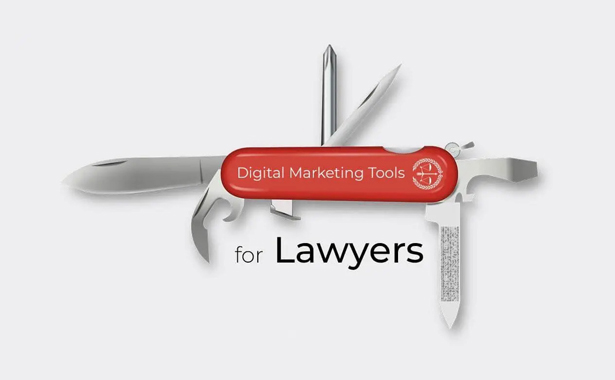Contents
Introduction
Back in the old days, there weren’t any project management or CRM software systems to help manage a lawyer’s caseload. There weren’t online legal research databases and you couldn’t find cases using keywords as you can today. Legal practice has changed so much as lawyers have become more reliant on computers and technology for research and writing documents that it’s hard to keep up with all the tools that are available today. In this post, we’ll talk about some of the most essential tools every attorney uses on their journey through law school and beyond. We’ll also discuss how technology has made lawyers’ jobs easier (and in some cases harder) over time!
1. Document Assembly Tools
Document assembly tools are a type of software that helps you create documents quickly and efficiently. They can be used for various purposes, such as creating legal documents or marketing materials.
A few examples of document assembly tools are:
- Word (Microsoft)
- Pages (Apple)
- RunSensible document assembly feature
2. Online Databases
Online databases, such as LexisNexis and Westlaw, are the most common tools used by legal professionals. A database is a collection of information organized into groups called fields. For example, if you were looking for cases related to your client’s injury claim, you might search “personal injury” in one field and then limit your results by state or federal court jurisdiction. This would allow you to quickly find cases that apply directly to their situation and save them time reading through irrelevant documents before they get started on their research project.
There are a couple of benefits to using an online legal research tool like this:
- Speed – You can usually find what you need quicker than if you were trying to do it manually (for example by searching through every page of every casebook) because these websites organize all their data automatically based on certain criteria (like location).
- Accuracy – There’s no need for manual input when searching; everything has already been done for you! Instead, you just need some direction about what terms you want your search engine software programmed with, and voila! The results will pop right up!
- Security – Online databases are always accompanied by the cloud. Cloud-based software allows you to access the information you need anywhere at any time while providing you or your client’s confidential information with security from malicious activities.
3. Project Management Software
Project management software is a must-have for keeping track of the tasks you need to do and for managing your time. It helps you manage your team, client expectations, and workflow with ease.
Project management tools can be used for anything from scheduling meetings or tracking billable hours to managing projects across multiple teams and locations. Some project management software includes a calendar, task tracker, and file-sharing tool all in one. This can be extremely helpful if you work with multiple clients or projects at once. Other project management tools focus on one aspect of the process and can be used for different types of businesses. Runsensible’s project management feature is a great choice for every lawyer since it allows you to manage your practice and clients with ease. This software is designed specifically for lawyers, and it will help you get organized so that you can focus on what matters most—your clients. Runsensible’s project management feature includes:
- A Calendar. where you can schedule appointments or meetings with clients
- A Task Tracker.where you can keep track of tasks related to each client or case
- A Project Manager.where you can manage each case and keep track of tasks related to each client or case -A contact manager where you can store all your contacts
- A Document Management System. where you can store all your documents related to each case or client -A time tracker where you can keep track of how much time is spent on each task
- A Dashboard. where you can see all the information related to your cases or clients at a single glance
- A CRM System. where you can keep track of all your clients and their details
The features listed above are all available to you in a free trial period. Click Here to sign up and see for yourself.
4. CRM Software for Lawyers
If you’re not using CRM software, you’re missing out on a great deal of productivity and efficiency. CRM stands for “customer relationship management,” and it’s a computerized system that manages a company’s relationships with its customers, partners, and vendors.
CRM applications can help lawyers keep track of things like client information (like contact details), sales leads, or other business-related information. They also allow you to manage your time more efficiently by tracking every second spent on a client matter so that you can bill them accordingly later on in the process.
Runsensible offers an all-in-one CRM solution for managing clients’ needs while also helping ensure compliance with state bar rules regarding timekeeping and billing practices.
5. E-Discovery Software for Lawyers
E-discovery software is used to collect, organize, review, and produce electronic information. This can be done by searching for specific keywords or phrases in documents that are stored on your computer, or it can be done by scanning all of your emails for relevant content.
E-discovery tools help lawyers comply with new legal requirements like the Federal Rules of Civil Procedure (FRCP). The FRCP requires lawyers to produce certain categories of documents during discovery: production requests must include any document that contains information relevant to the claim; responses must state whether any responsive documents exist; if so, they must list those documents’ titles or types and locations so opposing counsel can access them easily.
6. Email Automation Software for Lawyers
Email automation software is used to automate repetitive tasks. It can be used to save time and money, create a better customer experience, market products, and services, or even help lawyers with legal matters.
Conclusion
There are a lot of tools out there to help you get your job done right. The ones we’ve listed above are just a few examples and Runsensible offers all of them in an all-in-one solution that you can access from anywhere. We hope this article has helped you find some new tools that will make your life easier!
FAQ
1. Do I have to pay extra to have access to the project management options in Runsensible?
Absolutely not. You will be granted access to all of Runsensible’s features by purchasing a monthly/yearly subscription.
2. Are there any email templates available for purchase in Runsensible?
You don’t have to purchase anything extra. Runsensible has a fully automated email system with over a dozen pre-built templates for different occasions while giving you the option to create your own customized template(s).
3. Where can I learn how to work with Runsensible CRM?
Runsensible has an entirely dedicated webpage that contains text and video tutorials for new users.
Disclaimer: The content provided on this blog is for informational purposes only and does not constitute legal, financial, or professional advice.







